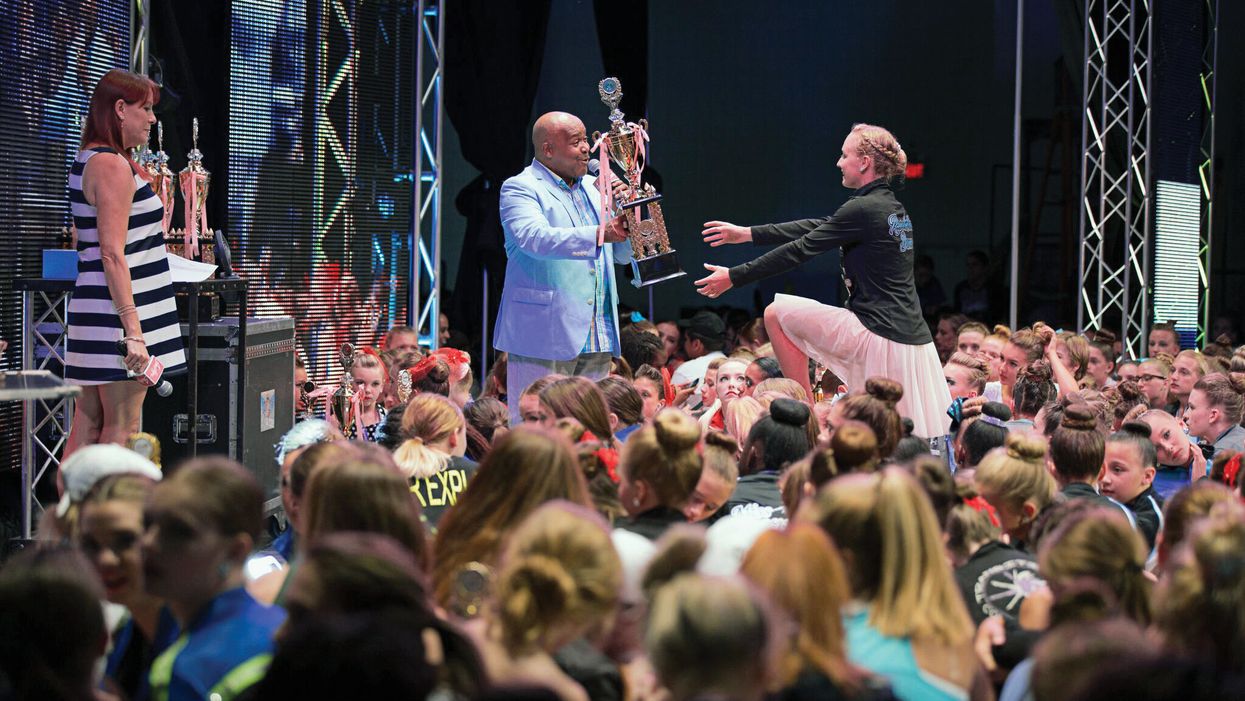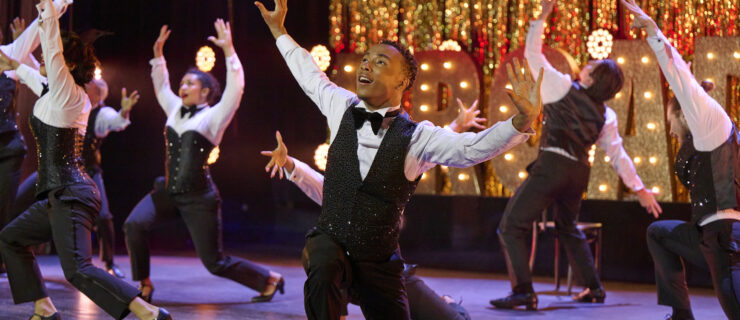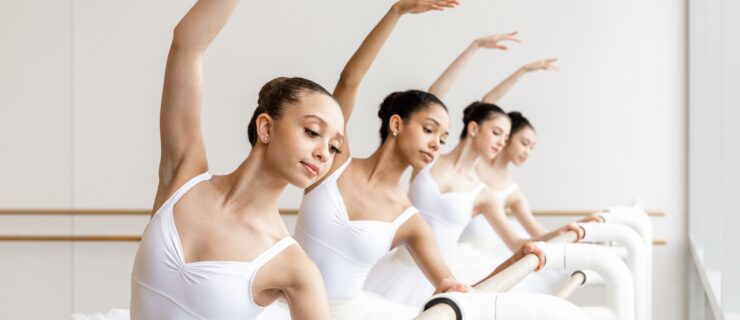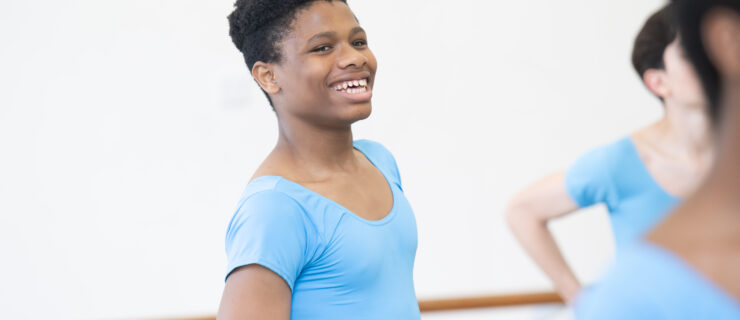How to Lose Gracefully at Dance Competitions
Competition award ceremonies represent the culmination of months of preparation. It’s no wonder dancers feel the pressure! But the truth is, most of us won’t come away with the grand prize. How do you prepare yourself for the results, whatever they may be? DS spoke with teachers and comp judges on how to cope at different stages of the competition—and to use any disappointment to your advantage.
You’re Getting Ready For The Competition, And You’re Already Nervous About How You’ll Place.
“Being competitive isn’t bad,” says Bea Arnold, competition judge and former jazz program director for United Spirit Association, and dance team director for Classical Academy High School in Escondido, CA. “That’s where drive comes from, and it’s how we push each other to improve. But don’t lose sight of your larger goals and objectives.”
Set goals that aren’t tied to the awards podium, like technical or showmanship elements that you hope to nail. Offstage goals could include taking a workshop from a choreographer you admire, or representing your team or studio well by being friendly and encouraging to your peers.
The other side of preparing for a competition involves managing your expectations. Working hard in hopes of earning recognition is one thing, but expecting a certain award sets you up for disappointment, no matter how talented you are. “Work really hard, but remember there’s always somebody better, so don’t expect anything,” says Christy Curtis, owner and director of CC & Co. Dance Complex in NC.
You Just Finished Your Routine, And You Feel Like You Messed Up And Hurt Your Odds Of Winning.
Disappointment is natural, but “when you come offstage, know that everybody who loves you is moved by your courage to perform, regardless of the outcome,” says Curtis. “Your mistake does not determine your value as a dancer.” Tapper and choreographer Anthony Morigerato, who judges at competitions like NUVO and The Dance Awards, advises dancers to do this: “The minute you come offstage, write down three things you think were amazing about your performance. Then, write down three things that could’ve been better.” This helps put mistakes in perspective and has you take responsibility for your artistic and technical development. “Your performances will improve because you’re in competition with yourself—not with an adjudication system or another dancer,” he says.
You’re Disappointed By The Outcome At The Awards Ceremony.
Etiquette and sportsmanship help you handle tense moments. Many studios and teams have awards-ceremony guidelines: “No talking, phones down, pay attention. ‘Eyebrows up’ to show you are engaged and thankful to be part of this process,” Arnold says.
Applaud for all categories, and stay for the full ceremony. Your reaction reflects your character, and graciousness goes a long way. As a director and choreographer, Morigerato hires dancers from competitions, and talent is not the only factor he considers. “Being a good person is more important than winning an award,” he says.
As the awards wrap up, express your gratitude. “Acknowledge and thank everyone who participated in the event: fellow dancers, staff, and administrators,” Curtis says.
Other Dancers Are Posting About The Competition On Social Media.
Never complain about competition results on social media. “Being passive-aggressive or a sore loser on social media is just as bad as in real life,” Morigerato says.
How to engage authentically if you’re disappointed? Lift up fellow dancers. “Give fair due to everybody’s effort and energy,” Morigerato says. You may notice that being positive about other performances and people who inspire you helps buoy your spirits.
You’re Back At Your First Rehearsal After A Loss, Reviewing Judges’ Feedback.
Remember that critiques are for your benefit. “As a judge, I’m trying to find constructive things for dancers to work on to help them become better performers,” Morigerato says.
 (From left) Anthony Morigerato and Mike Minery presenting the Best Tap Performance award at The Dance Awards (courtesy The Dance Awards)
(From left) Anthony Morigerato and Mike Minery presenting the Best Tap Performance award at The Dance Awards (courtesy The Dance Awards)
At Curtis’ studio, dancers use this to their advantage. “Every criticism is taken into consideration,” Curtis says. “Feedback videos are valuable rehearsal tools.”
Compare the judges’ notes to your own, and work with your teachers to prioritize and address them. Morigerato encourages dancers to focus on a few notes at a time instead of trying to correct everything all at once.
Keep in mind that this score sheet represents one performance and one panel of judges. Subjectivity is unavoidable in adjudication, which is why it can help to attend multiple competitions in a season to get a range of reactions to your work.
In the end, the process and the experience matter more than the outcome. “When you really work hard at something and you enjoy it,” Curtis says, “the reward is that you feel great about yourself.”
A version of this story appeared in the March 2018 issue of
Dance Spirit with the title “Winning Isn’t Everything.”




